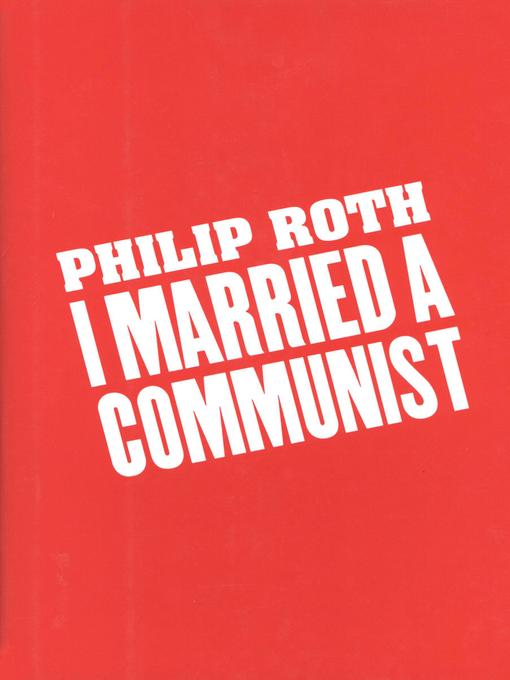
I Married a Communist
Nathan Zuckerman Series, Book 7
کتاب های مرتبط
- اطلاعات
- نقد و بررسی
- دیدگاه کاربران
نقد و بررسی

September 28, 1998
Disconcerting echoes of Roth's relationship with Claire Bloom, as revealed in her memoir, Leaving the Doll's House, haunt Roth's angry but oddly inert 23rd novel. As in American Pastoral, Roth again deals with the Newark of his youth, and with the sons of Jewish immigrants to whom America has given opportunity and even riches--and how they are swept off course by the forces of history. Roth's old alter ego, Nathan Zuckerman, narrates the story of Ira Ringold, aka Iron Rinn, a supremely idealistic political radical and celebrated radio star of the 1950s who is blacklisted and brought to ruin when his wife, Eva Frame (a self-hating Jewish actress born Chava Fromkin), writes an expose called I Married A Communist. The impetus for Eva's treacherous act is Ira's insistence that she evict her 24-year-old daughter from their house; the resemblance to Bloom's revelations of Roth's similar demand is too close to miss, and Roth's shrill belaboring of the issue seems a thinly disguised vendetta. Even high-pitched scenes of family conflict don't bring the novel to life. One problem is that the flat flashback narration shared between the 64-year-old Nathan and Ira's 90-year-old brother, Murray, is stultifyingly dull. Some fine Roth touches do appear: his evocation of the Depression years through the McCarthy era has clarity and vigor. But Ira's aggressively boorish behavior as he struggles with his conscience over having abandoned his Marxist ideals to assume a bourgeois lifestyle is never credible, and his turgid ideological rants against the American government are jackhammers of repetitious invective. In addition, the depiction of an adolescent Nathan as a precocious writer and social philosopher and the saintly Murray's infallible memory of long conversations with Ira--even between Ira and Eva in bed--challenge the reader's credulity. For those who lived through the years Roth evokes, this novel will have some resonance. For others, its belligerent tone and lack of dramatic urgency will be a turn-off. 150,000 first printing; $150,000 ad/promo.

June 15, 1998
Roth turns from chaotic Sixties (in American Pastoral) to the betrayals of the McCarthy era one decade earlier. When silent-film star Eve Frame (born Chava Fromkin) tells the world that her husband, famed radio actor Iron Rinn (born Ira Ringold), spied for the Commies, all hell breaks loose.

Starred review from July 1, 1998
The famous radio performer Ira Ringold was a Communist, and in the late 1940s and early 1950s, that was a hazardous card to carry, given all the Red-baiting going on in Washington. Ira's wife, a radio personality herself and a former silent-film star, revealed his sympathies in an expose, "I Married a Communist," and destroyed him. Long after Ira's death, narrator Nathan Zuckerman (Roth's alter ego reprised from earlier novels) learns from his high-school teacher, Murray Ringold, Ira's brother, all the details of Ira's rise and fall. Although Nathan had been well acquainted with Ira back in his prime, and certainly had been introduced to his radical politics, Nathan was not aware of Ira's membership in the party. In fact, Nathan did not know that the real reason for the rejection of his Fulbright application was because of his friendship with Ira, then under surveillance by the FBI. Only later, in discussions with Murray, does Nathan find all this out--and, privy to Murray's and Nathan's conversations, so does the reader. Roth luxuriates in wordplay and circuitous storytelling, but his beautiful prose exquisitely achieves his purpose of illuminating every fiber of the fascinating Ira as well as of the social and political atmosphere of the post^-World War period. The result is a deft, trenchant novel. ((Reviewed July 1998))(Reprinted with permission of Booklist, copyright 1998, American Library Association.)

























دیدگاه کاربران